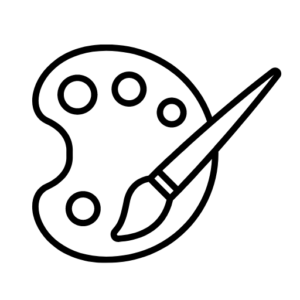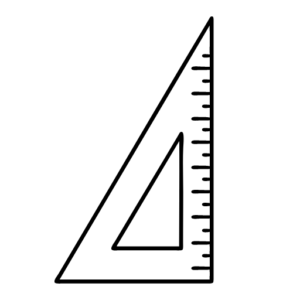Course Name:Arts
Course Description
In Grade 8 Arts, students will demonstrate an understanding of a variety of dance forms, traditions, and styles from the past and present and their sociocultural and historical contexts. They will explore drama and theatre themes and traditions from different times, communities, and places.
Students will create musical compositions for specific purposes and audiences. They will use elements of design in artworks to communicate ideas and messages
Course Outline
Grade -8 Arts - Total Hours (31 Hours)
Unit One: Dance (6-Hours)
Unit Two: Drama (6-Hours)
Unit Three: Music (6-Hours)
Unit Four: Visual Arts (6-Hours)
Additionally, they will demonstrate an understanding of composition, using selected principles of design to create narrative artworks and demonstrate an understanding of how to read and interpret signs, symbols, and style in artworks.
Unit 5: Principles of Design (7-Hours)
Resources required by the student:
- A scanner, smartphone camera, or similar device to upload handwritten or hand-drawn work,
- Laptop and/or personal computer (preferably with Google Chrome or Mozilla Firefox as a web browser)
- Access to video recording and handwritten work scanning (mobile phone, tablet, iPad, webcams)
- Stable internet connection
Resources provided by Canadian Global School
- Access to Google Suites or Microsoft Education for word processing software and presentation software. (The school will distribute accounts to students).
- Supplemental Readings
Note: This course is entirely online and does not require or rely on any textbook.
Resources Needed:
This course is entirely online and does not require nor rely on any textbook. Students will require the following resources:
- Laptop and/or personal computer (preferably with Google Chrome or Mozilla Firefox as a web browser)
- Stable internet connection
- A scanner, smartphone camera, or similar device to digitize handwritten or hand-drawn work
- Access to video recording and handwritten work scanning (mobile phone, tablet, iPad, webcams)
- Various art supplies to complete offline activities

Teaching Strategies
Using a variety of instructional strategies, the teacher will provide numerous opportunities for students to develop skills of inquiry, problem solving, and communication as they investigate and learn fundamental concepts. The integration of critical thinking and critical inquiry skills will provide a powerful tool for reasoning and problem solving, and is reflected in a meaningful blend of both process and content Throughout this course students will:
- Interact in student-paced and instructor-paced interactive, engaging instructional lessons.
- Understand the value of diversity in learning and in society
- Refine their existing compensatory strategies for learning and develop additional strategies to help meet their potential as learners and use them throughout the elementary grades.
- Cultivate problem-solving skills to become independent learners.
- Opportunities to learn in various ways- individually, cooperatively, independently, with teacher direction, through hands-on experiences, and through examples followed by practice.
- Accomplish prompts on interactive lessons, students can reflect on different texts. In addition, constant communication with teachers ensures that the students understand complex topics and apply them in their writing. They can also accomplish other tasks through the use of animations, videos, discussion forums, live chat and other interactive objects.
- The teacher will be working in facilitating the course content and participating in discussions to support students in developing communication skills.
Course Name:Math
Course Description
In Grade 8 Math, the students will finish their intermediate math journey by utilizing scientific notation to explore extremely large and extremely small numbers. They will solve problems involving area, perimeter, volume, and angles. Whole numbers, fractions, decimals, percentages, and negative numbers will be included in their comprehension of operations (integers). They will also keep studying and representing patterns with algebra, as well as data analysis and representation and probability. Moreover, by examining budgets and developing and maintaining financial objectives, their financial literacy will be strengthened.

Curriculum Information:Mathematics (2020)

Course Developer: Canadian Global School

Development Date: 2022
Course Outline
Grade-8 Math -Total Hours (158 Hours)
Unit One: Number (40-Hours)
Unit Two: Algebra (40-Hours)
Unit Three: Data (40-Hours)
Unit Four: Spatial (40-Hours)
Unit Five: Financial Literacy (38-Hours)
Resources required by the student:
- A scanner, smartphone camera, or similar device to upload handwritten or hand-drawn work,
- Laptop and/or personal computer (preferably with Google Chrome or Mozilla Firefox as a web browser)
- Access to video recording and handwritten work scanning (mobile phone, tablet, iPad, webcams)
- Stable internet connection
Resources provided by Canadian Global School
- Access to Google Suites or Microsoft Education for word processing software and presentation software. (The school will distribute accounts to students).
- Supplemental Readings
Note: This course is entirely online and does not require or rely on any textbook.
Resources Needed:
This course is entirely online. It does not require nor rely on any textbook.
Students will need the following resources:
- Laptop and/or personal computer (preferably with Google Chrome or Mozilla Firefox as a web browser)
- Stable internet connection
- A scanner, smartphone camera, or similar device to digitize handwritten or hand-drawn work
- Access to video recording and handwritten work scanning (mobile phone, tablet, iPad, webcams)

Teaching Strategies
Using various instructional strategies, the teacher will provide numerous opportunities for students to develop inquiry, problem-solving, and communication skills as they investigate and learn fundamental concepts. The integration of critical thinking and critical inquiry skills will provide a powerful tool for reasoning and problem solving and is reflected in a meaningful blend of both process and content.
Throughout this course, students will:
- Interact in student-paced and instructor-paced interactive, engaging instructional lessons.
- Understand the value of diversity in learning and in society
- Develop self-confidence and self-advocacy skills
- Refine their existing compensatory strategies for learning and develop additional strategies to help meet their potential as learners and use them throughout the elementary grades.
- Cultivate problem-solving skills to become independent learners.
- Opportunities to learn in various ways- individually, cooperatively, independently, with teacher direction, through hands-on experiences, and through examples followed by practice.
- Accomplish prompts on interactive lessons. Students can reflect on different texts. In addition, constant communication with teachers ensures that the students understand complex topics and apply them in their writing. They can also accomplish other tasks by using animations, videos, discussion forums, live chat and other interactive objects.
The course relies on the help of a teacher to support young learners through the lessons. The teacher will be working in facilitating the course content and participating in the discussions to support students in developing communication skills
Course Name:Science
Course Description
In Grade 8 Science, students will focus on the structure and function of cells in plants and animals to further their understanding of creatures. They’ll learn about fluids and the various applications of fluid mechanics, as well as the impact of fluids on industrial processes. Students will understand how societal demands drive system evolution. They will also study the world’s water systems and the critical function that water plays in global ecosystems.

Curriculum Information: Science (2022)

Course Developer: Canadian Global School

Development Date: 2022
Course Outline
Grade-8 Science -Total Hours (95 Hours)
Unit One: Understanding Life Systems Cells (23-Hours)
Unit Two: Understanding Structures and Mechanisms Systems in Action (23-Hours)
Unit Three: Understanding Matter and Energy (Fluids) (23-Hours)
Additionally, the students will demonstrate an understanding of the properties and uses of fluids.
Unit Four: Understanding Earth and Space Systems (Water Systems) (26-Hours)
Resources required by the student:
- A scanner, smartphone camera, or similar device to upload handwritten or hand-drawn work,
- Laptop and/or personal computer (preferably with Google Chrome or Mozilla Firefox as a web browser)
- Access to video recording and handwritten work scanning (mobile phone, tablet, iPad, webcams)
- Stable internet connection
Resources provided by Canadian Global School
- Access to Google Suites or Microsoft Education for word processing software and presentation software. (The school will distribute accounts to students).
- Supplemental Readings
Note: This course is entirely online and does not require or rely on any textbook.
Resources Needed:
This course is entirely online and does not require nor rely on any textbook. Students will need the following resources:
- Stable internet connection
- A scanner, smartphone camera, or similar device to digitize handwritten or hand-drawn work
- Access to video recording and handwritten work scanning (mobile phone, tablet, iPad, webcams)
- Various household items to complete offline activities

Teaching Strategies
Using a variety of instructional strategies, the teacher will provide numerous opportunities for students to develop skills of inquiry, problem-solving, and communication as they investigate and learn fundamental concepts.
The integration of critical thinking and critical inquiry skills will provide a powerful tool for reasoning and problem solving and is reflected in a meaningful blend of both process and content.
Throughout this course, students will:
- Interact in student-paced and instructor-paced interactive, engaging instructional lessons.
- Develop self-confidence and self-advocacy skills
- Refine their existing compensatory strategies for learning and develop additional strategies to help meet their potential as learners and use them throughout the elementary grades.
- Cultivate problem-solving skills to become independent learners.
- Opportunities to learn in various ways- individually, cooperatively, independently, with teacher direction, through hands-on experiences, and through examples followed by practice.
- Accomplish prompts on interactive lessons. Students can reflect on different texts. In addition, constant communication with teachers ensures that the students understand complex topics and apply them in their writing. They can also accomplish other tasks by using animations, videos, discussion forums, live chat and other interactive objects.
Course Name: History
Course Description
In Grade 8 history, students will build on their understanding of early Canadian history. They will examine how social, political, economic, and legal changes between 1850 and 1914 affected different individuals, groups, and communities. Students will consider the impact of the Indian Act, the residential school system, the Numbered Treaties, and systemic racism on Indigenous individuals and communities in Canada. They will analyze the impact of the Confederation and territorial expansion.. By examining inequalities in the new nation, students will study the origins of the rights and freedoms in Canada today.

Curriculum Information:Social Science (2018)

Course Developer: Canadian Global School

Development Date: 2022
Course Outline
Grade -8 History - Total Hours (31 Hours)
Unit One: Creating Canada: 1850–1890 (15-Hours)
Unit Two: Canada, 1890–1914: A Changing Society (16-Hours)
Additionally, they will examine how Canadian multiculturalism evolved, how Indigenous people’s lives changed, and how education impacted groups. They will compare the past to the present. From various perspectives, students will draw conclusions about significant events and Canada’s place in the British Empire. Finally, they will develop skills in gathering information, evaluating ideas, using maps, and communicating their learnings.
Resources required by the student:
- A scanner, smartphone camera, or similar device to upload handwritten or hand-drawn work,
- Laptop and/or personal computer (preferably with Google Chrome or Mozilla Firefox as a web browser)
- Access to video recording and handwritten work scanning (mobile phone, tablet, iPad, webcams)
- Stable internet connection
Resources provided by Canadian Global School
- Access to Google Suites or Microsoft Education for word processing software and presentation software. (The school will distribute accounts to students).
- Supplemental Readings
Note: This course is entirely online and does not require or rely on any textbook.
Resources Needed:
This course is entirely online and does not require nor rely on any textbook. Students will require the following resources:
- Laptop and/or personal computer (preferably with Google Chrome or Mozilla Firefox as a web browser)
- Stable internet connection
- A scanner, smartphone camera, or similar device to digitize handwritten or hand-drawn work
- Access to video recording and handwritten work scanning (mobile phone, tablet, iPad, webcams)

Teaching Strategies
| Students will develop a solid foundation of history processes, knowledge, and skills to apply in real-world contexts through a combination of problem-solving and direct instruction. The course employs a mix of online and offline activities to allow students to develop an understanding of skills and concepts in interactive and concrete ways and engage multiple learning styles. To reinforce students’ learning, the lessons include a variety of intriguing storylines, characters, videos, storybooks, and interactive games. These activities also lay the groundwork for students to use historical terms throughout the elementary grades.
The teacher will assist students in developing communication skills by facilitating the course content and participating in discussion-based activities. |
Course Name:French
Course Description
In Grade 8 French, our students will write and speak about healthy practices. They will explore career and volunteering opportunities in French-speaking communities. They will also research cultural activities available in their town. Finally, students will explore ideas and solutions to manage everyday responsibilities and challenges.

Curriculum Information:French (2013)

Course Developer: Canadian Global School

Development Date: 2022
Course Outline
Grade -8 French - Total Hours (158 Hours)
Unit One: Garder une bonne santé (40-Hours)
Unit Two: Le futur (40-Hours)
Unit Three: Je me renseigne (40-Hours)
Unit Four: Je gère mon temps (38-Hours)
Resources required by the student:
- A scanner, smartphone camera, or similar device to upload handwritten or hand-drawn work,
- Laptop and/or personal computer (preferably with Google Chrome or Mozilla Firefox as a web browser)
- Access to video recording and handwritten work scanning (mobile phone, tablet, iPad, webcams)
- Stable internet connection
Resources provided by Canadian Global School
- Access to Google Suites or Microsoft Education for word processing software and presentation software. (The school will distribute accounts to students).
- Supplemental Readings
Note: This course is entirely online and does not require or rely on any textbook.
Resources Needed:
This course is entirely online and does not require nor rely on any textbook. Students will require the following resources:
- Laptop and/or personal computer (preferably with Google Chrome or Mozilla Firefox as a web browser)
- Stable internet connection
- A scanner, smartphone camera, or similar device to digitize handwritten or hand-drawn work
- Access to video recording and handwritten work scanning (mobile phone, tablet, iPad, webcams)

Teaching Strategies
Using a variety of instructional strategies, the teacher will provide numerous opportunities for students to develop skills of inquiry, problem solving, and communication as they investigate and learn fundamental concepts. The integration of critical thinking and critical inquiry skills will provide a powerful tool for reasoning and problem solving, and is reflected in a meaningful blend of both process and content Throughout this course students will:
- Interact in student-paced and instructor-paced interactive, engaging instructional lessons.
- Understand the value of diversity in learning and in society
- Refine their existing compensatory strategies for learning and develop additional strategies to help meet their potential as learners and use them throughout the elementary grades.
- Cultivate problem-solving skills to become independent learners.
- Opportunities to learn in various ways- individually, cooperatively, independently, with teacher direction, through hands-on experiences, and through examples followed by practice.
- Accomplish prompts on interactive lessons, students can reflect on different texts. In addition, constant communication with teachers ensures that the students understand complex topics and apply them in their writing. They can also accomplish other tasks through the use of animations, videos, discussion forums, live chat and other interactive objects.
- The course relies on the help of a teacher to support young learners through the lessons. The teacher will be working in facilitating the course content and participating in discussions to support students in developing communication skills.
Course Name: Health
Course Description
In Grade 8 Health, students will learn to develop a detailed understanding of warning signs and risks of substance abuse. In addition, they will understand human development as they learn about gender identity and expression, abstinence and contraception, and healthy relationships. Students will also learn techniques to build positive mental health and how to combat mental health stigma.
Lastly, they will study the importance of healthy food and food influences.

Curriculum Information:Health and Physical Education (2019)

Course Developer: Canadian Global School

Development Date: 2022
Course Outline
Grade -8 Health - Total Hours (31 Hours)
Unit One: Healthy Living (8-Hours)
Unit Two: Personal Safety, Substance Use, Addictions and Related Behaviours (8-Hours)
Unit Three: Human Development and Sexuality (8-Hours)
Moreover, students will study gender identity, gender expression, and sexual orientation. Finally, they will identify factors that can help all individuals to develop a positive attitude towards themselves.
Unit Four: Mental Health (7-Hours)
Resources required by the student:
- A scanner, smartphone camera, or similar device to upload handwritten or hand-drawn work,
- Laptop and/or personal computer (preferably with Google Chrome or Mozilla Firefox as a web browser)
- Access to video recording and handwritten work scanning (mobile phone, tablet, iPad, webcams)
- Stable internet connection
Resources provided by Canadian Global School
- Access to Google Suites or Microsoft Education for word processing software and presentation software. (The school will distribute accounts to students).
- Supplemental Readings
Note: This course is entirely online and does not require or rely on any textbook.
Resources Needed:
This course is entirely online and does not require nor rely on any textbook. Students will require the following resources:
- Laptop and/or personal computer (preferably with Google Chrome or Mozilla Firefox as a web browser)
- Stable internet connection
- A scanner, smartphone camera, or similar device to digitize handwritten or hand-drawn work
- Access to video recording and handwritten work scanning (mobile phone, tablet, iPad, webcams)
- A physical binder, folder, or notebook for offline activities
- Paper, pencil

Teaching Strategies
Using various instructional strategies, the teacher will provide numerous opportunities for students to develop skills in problem-solving and communication as they investigate and learn fundamental concepts. The integration of critical thinking and critical inquiry skills will provide a powerful tool for reasoning and problem-solving and is reflected in a meaningful blend of both process and content. Throughout this course, students will:
- Interact in student-paced and instructor-paced interactive, engaging instructional lessons.
- Understand the value of diversity in learning and in society
- Develop self-confidence and self-advocacy skills
- Refine their existing compensatory strategies (reading strategies, writing strategies, listening strategies, study strategies, researching strategies, strategies for memory, organizational strategies, and time management strategies) for learning and develop additional strategies to help meet their potential as learners and use throughout the elementary grades.
- Cultivate problem solving skills to become independent learners.
- Opportunities to learn in a variety of ways- individually, cooperatively, independently, with teacher direction, through hands-on experiences, and through examples followed by practice.
- Accomplish prompts on interactive lessons. Students can reflect on different texts. In addition, constant communication with teachers ensures that the students understand complex topics and apply them in their writing. They can also accomplish other tasks through the use of animations, videos, discussion forums, live chat and other interactive objects.
- The teacher will be working in facilitating the course content and participating in discussions to support students in developing communication skills.
Course Name:Geography
Course Description
In Grade 8 geography, students will explore the relationship between Earth’s physical features and processes and human settlement patterns around the world. They will investigate issues related to sustainability, global development and quality of life. Students will be introduced to new types of maps and graphs, including choropleth maps, scatter graphs, and population pyramids.They will also continue to develop their ability to use a variety of sources, tools, and spatial technologies to study various geographic issues.

Curriculum Information:Social Studies (2018)

Course Developer: Canadian Global School

Development Date: 2022
Course Outline
Grade -8 Geography - Total Hours (31 Hours)
Unit One: Global Settlement: Patterns and Sustainability (15-Hours)
Unit Two: Global Inequalities: Economic Development and Quality of Life (16-Hours)
Resources required by the student:
- A scanner, smartphone camera, or similar device to upload handwritten or hand-drawn work,
- Laptop and/or personal computer (preferably with Google Chrome or Mozilla Firefox as a web browser)
- Access to video recording and handwritten work scanning (mobile phone, tablet, iPad, webcams)
- Stable internet connection
Resources provided by Canadian Global School
- Access to Google Suites or Microsoft Education for word processing software and presentation software. (The school will distribute accounts to students).
- Supplemental Readings
Note: This course is entirely online and does not require or rely on any textbook.
Resources Needed:
This course is entirely online and does not require nor rely on any textbook. Students will require the following resources:
- Laptop and/or personal computer (preferably with Google Chrome or Mozilla Firefox as a web browser)
- Stable internet connection
- A scanner, smartphone camera, or similar device to digitize handwritten or hand-drawn work
- Access to video recording and handwritten work scanning (mobile phone, tablet, iPad, webcams)

Teaching Strategies
Students will develop a solid foundation of geography processes, knowledge, and skills to apply in real-world contexts through problem-solving and direct instruction. The course employs a mix of online and offline activities to allow students to develop an understanding of skills and concepts in interactive and concrete ways and engage in multiple learning styles. To reinforce students’ learning, the lessons include a variety of videos and interactive games. These activities also lay the groundwork for students to use geography-related terms throughout the elementary grades.
The teacher will assist students in developing communication skills by facilitating the course content and participating in discussion-based activities.
Course Name: Computer Science
Course Description
In Grade 8 Coding, students will learn the basics of programming in the Python language. With the help of “Tracy”, a virtual turtle, they will learn to instruct and use various commands to draw scenes on a canvas. Students will learn Python commands, functions, and control structures by solving puzzles and writing creative programs for “Tracy” to follow.

Course Developer: Canadian Global School

Development Date: 2022
Course Outline
Grade-8 Computer Science -Total Hours (63 Hours)
Unit One: Tracy’s World (11-Hours)
Unit Two: Moving Tracy Efficiently (11-Hours)
Unit Three: Designing and Communicating Solutions (11-Hours)
Unit Four: Controlling Tracy with Variables (10-Hours)
Unit Five: Making Decisions (10-Hours)
Unit Six: Tracy Challenges (10-Hours)
Resources required by the student:
- Laptop and/or personal computer (preferably with Google Chrome or Mozilla Firefox as a web browser)
- Access to video recording and handwritten work scanning (mobile phone, tablet, iPad, webcams)
- Stable internet connection
- A scanner, smartphone camera, or similar device to upload handwritten or hand-drawn work,
Resources provided by Canadian Global School
- Access to Google Suites or Microsoft Education for word processing software and presentation software. (The school will distribute accounts to students).
- Supplemental Readings
Note: This course is entirely online and does not require or rely on any textbook.
Resources Needed:
This course is entirely online and does not require nor rely on any textbook. Students will need the following resources:
- Laptop and/or personal computer (preferably with Google Chrome or Mozilla Firefox as a web browser)
- Stable internet connection

Teaching Strategies
Using various instructional strategies, the teacher will provide numerous opportunities for students to develop skills of inquiry, problem-solving, and communication as they investigate and learn fundamental coding concepts. The integration of critical thinking and inquiry skills will provide a powerful tool for reasoning and problem-solving and is reflected in a meaningful blend of both process and content. Throughout this course, students will:
- Interact in student-paced and instructor-paced interactive, engaging instructional lessons.
- The content is entirely web-based, with students writing and running code in the browser.
- Teachers utilize tools and resources provided by CodeHS to leverage time in the classroom and give focused 1-on-1 attention to students.
Course Name: Language Arts
Course Description
In Grade 8 Language, our students will further cement their language knowledge, skills and strategies. They will study oral, print, media texts, non-fiction texts as well as novels.

Curriculum Information:Language (2008)

Course Developer: Canadian Global School

Development Date: 2022
Course Outline
Grade-8 Language Arts - Total Hours (158 Hours)
Unit One: General Writing and Grammar (31-Hours)
Unit Two: Non-fiction (31- Hours)
Unit Three: Writing (32 Hours)
Unit Four: Novel Study (32-Hours)
Unit Five: Media Literacy (32-Hours)
Resources Needed
This course is entirely online and does not require nor rely on any textbook. Students will need the following resources:
- Laptop and/or personal computer (preferably with Google Chrome or Mozilla Firefox as a web browser)
- Stable internet connection
- A scanner, smartphone camera, or similar device to digitize handwritten or hand-drawn work
- Access to video recording and handwritten work scanning (mobile phone, tablet, iPad, webcams)
Resources required by the student:
- A scanner, smartphone camera, or similar device to upload handwritten or hand-drawn work,
- Laptop and/or personal computer (preferably with Google Chrome or Mozilla Firefox as a web browser)
- Access to video recording and handwritten work scanning (mobile phone, tablet, iPad, webcams)
- Stable internet connection
Note: This course is entirely online and does not require or rely on any textbook.
Resources provided by Canadian Global School
- Access to Google Suites or Microsoft Education for word processing software and presentation software. (The school will distribute accounts to students).
- Supplemental Readings

Teaching Strategies
Using a variety of instructional strategies, the teacher will provide numerous opportunities for students to develop skills of inquiry, problem-solving, and communication as they investigate and learn fundamental concepts. The integration of critical thinking and critical inquiry skills will provide a powerful tool:
- Interact in student-paced and instructor-paced interactive, engaging instructional lessons.
- Understand the value of diversity in learning and society
- Develop self-confidence and self-advocacy skills
- Refine their existing compensatory strategies (reading strategies, writing strategies, listening strategies, study strategies, researching strategies, strategies for memory, organizational strategies, and time management strategies) for learning and develop additional strategies to help meet their potential as learners and use throughout the elementary grades.
- Cultivate problem-solving skills to become independent learners.
- Opportunities to learn in various ways- individually, cooperatively, independently, with teacher direction, hands-on experiences, and through examples followed by practice.
- Accomplish prompts on interactive lessons.
- students can reflect on different texts. In addition, constant communication with teachers ensures that the students understand complex topics and apply them in their writing. They can also accomplish other tasks using animations, videos, discussion forums, live chat, and other interactive objects.
- The teacher will be working in facilitating the course content and participating in discussions to support students in developing communication skills.










